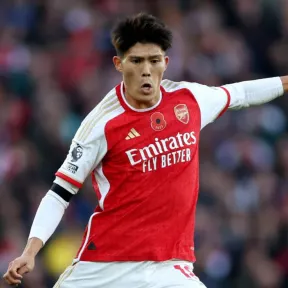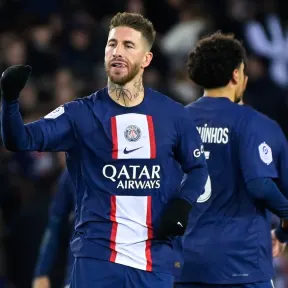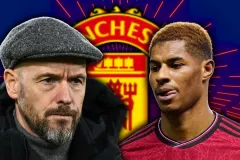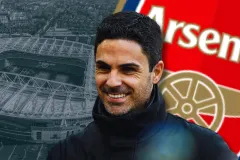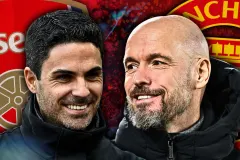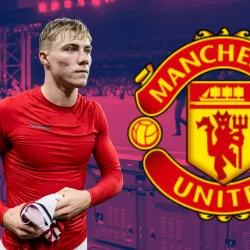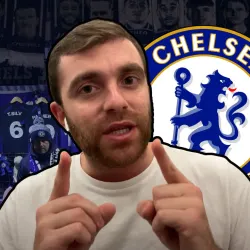Ronaldo and the five worst winners of the Ballon d’Or
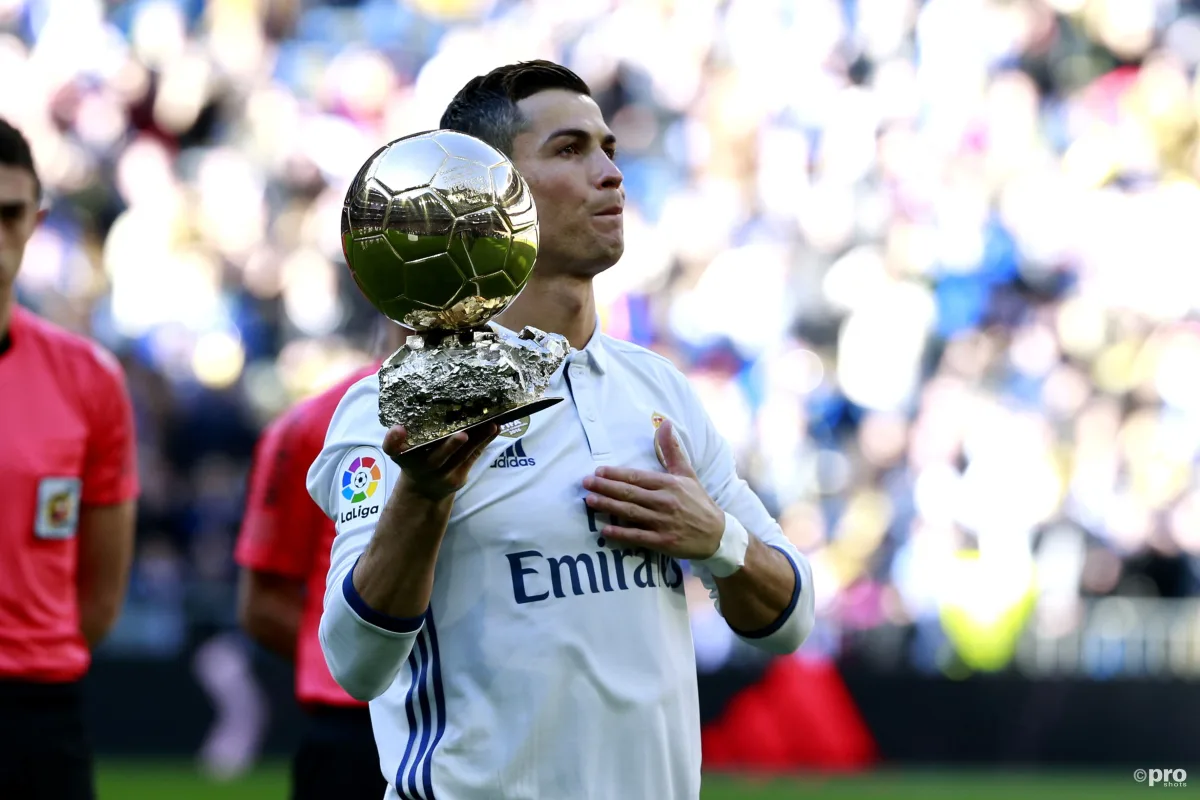
Since its inception in 1956, the Ballon d’Or has been the most prestigious individual prize in football.
While most footballers will publicly declare that their sole focus is on winning trophies with their teams, privately every single player dreams of getting their hands on the Golden Ball.
Who will win Ballon d’Or 2022? Shortlist, favourites, latest odds, date and past winners
However, in recent years in particular, the Ballon d’Or has undoubtedly lost its credibility due to some very questionable results when it comes to the winner, podium and shortlist. This was best exemplified in 2010 when Lionel Messi won instead of Wesley Sneijder, who didn't even make the top three.
All eyes will be on the 2022 Ballon d'Or, which is announced on October 17 to see if there are any more injustices. Karim Benzema is currently the odds-on favourite to win the main prize.
Throughout the history of the award, there have been a number of winners who didn’t deserve the prize.
Football Transfers picks five such winners from the past.
Kevin Keegan (England): 1978
Kevin Keegan will be remembered as one of the all-time greats of English football, winning the Ballon d’Or in 1978 and 1979.
However, the first of those two prizes was completely undeserved. Keegan scored just six Bundesliga goals for Hamburg in 1977-78 as his team finished in tenth place.
Kevin Keegan receives his first Ballon d’Or from France Football Editor-in-Chief Jacques Thibert, 1979. pic.twitter.com/FX4pouqPXU
— The Antique Football (@AntiqueFootball) January 13, 2014
They were eliminated in the second round of the Cup Winners’ Cup and thrashed 7-1 in the UEFA Super Cup by his previous club Liverpool.
Keegan also didn’t play in the World Cup that year as England failed to qualify.
The 10 best players never to win the Ballon d’Or
In truth, there were no real European standouts at that World Cup in Argentina, but Keegan should have been nowhere near the podium.
Perhaps the deserved winner was Kenny Dalglish, who ironically replaced Keegan at Liverpool. He scored 31 times and hit the winner in the European Cup final.
Igor Belanov (Soviet Union): 1986
Prior to 1995, only European players playing for European clubs were eligible to win the Ballon d’Or.
That meant that in 1986, the great Diego Maradona could not win the prize after single-handedly taking Argentina to World Cup glory.
Nevertheless, it still came as a huge surprise when the Ballon d’Or was awarded to Igor Belanov of the Soviet Union, instead.
USSR and Dynamo Kiev's Igor Belanov being presented with the 1986 Ballon d'Or prior to the European Cup Quarter-finals/2nd leg match v Besiktas, 18 March 1987. pic.twitter.com/zj8agtF4R7
— A Football Archive* (@FootballArchive) September 3, 2020
Belanov had joint top-scored for Dynamo Kyiv with five goals as they won the Cup Winners’ Cup that year, although two of these were penalties. He also had a short but superb World Cup, scoring a hat-trick in the memorable 4-3 last-16 loss to Belgium.
But he also only scored 10 league goals, only once again hitting double figures in the remainder of his career.
Many believe the award to Belanov was partly a political one, given the newfound cooperation between East and West ahead of the dismantling of the Soviet Union and the Iron Curtain later that decade.
Michael Owen (England): 2001
Michael Owen’s 2001 Ballon d’Or victory was greeted with disbelief at the time and it is still hard to believe more than two decades on.
Owen was injured for much of the 2000/01 season, missing over a quarter of the Premier League campaign, but scoring a respectable 16 times.
Michael Owen 🗣"I was probably on the decline at 23. When I was 19 I ruptured my hamstring and it didn't repair well. I won the Ballon d'Or at 21 but then injuries slowed me down. It was never my dream to play for Stoke, Manchester United and Newcastle" pic.twitter.com/GWNpvg9JDE
— Footy Accumulators (@FootyAccums) December 15, 2019
Liverpool did win three trophies in this season but, not only were they three rather modest trophies (FA Cup, League Cup and UEFA Cup), Owen barely featured in the League Cup, and scored only four goals in the Uefa Cup run, with none of his four coming in the latter stages.
It was a combination of Owen’s double in the FA Cup final against Arsenal and a World Cup qualifying hat-trick against Germany in Munich in October 2001 that helped him win.
There were clearly more deserving victors, though. None more so than Raul.
The Real Madrid legend netted 24 goals in 36 La Liga games as Real Madrid took the title. He won the Pichichi and scored a further seven goals in the Champions League as they reached the semi-finals. Numbers wise, it was the best season of Raul’s career.
Lionel Messi (Argentina): 2010
Lionel Messi winning the 2010 Ballon d’Or was the straw that broke the camel’s back in terms of the credibility of this award.
Messi had, of course, enjoyed an outstanding club season for a generational Barcelona side under Pep Guardiola. He had scored 47 goals in all competitions and won La Liga.
However, he had fallen short in the two competitions which carry the most weight when it comes to deciding the Ballon d’Or. Barcelona were eliminated in the semi-finals of the Champions League by Inter, with Messi struggling in both legs, and he failed to score a single World Cup goal as Argentina were knocked out in the quarters.
One player who lit up both the Champions League and World Cup that year was Wesley Sneijder, who most neutrals agree should have won the vote by a landslide.
He inspired Inter to a historic treble of Serie A, Coppa Italia and Champions League trophies. He scored key Champions League goals in the quarter final and semi final, and delivered a brilliant assist for Diego Milito for the opening final goal against Bayern Munich.
He was joint-top scorer at the World Cup with five goals, scoring both in the shock quarter-final win over Brazil and another in the semi-final victory over Uruguay. He was also awarded the Silver Ball as the second-best player in the tournament, behind Uruguay’s Diego Forlan. Despite all this, Sneijder somehow only finished fourth in the Ballon d’Or rankings as there was an all-Barcelona podium.
Cristiano Ronaldo (Portugal): 2013
Cristiano Ronaldo winning the 2013 Ballon d’Or was another example of the favouritism shown towards the player and his eternal rival Messi among voters for this prize.
Ronaldo did score 55 goals this year – five less than Messi – but he won absolutely nothing.
Franck Ribery, meanwhile, had been the inspiration of Bayern Munich’s treble-winning side.
The Frenchman scored 11 goals and produced 23 assists in 2012/13 in all competitions. This included the brilliant assist in the final for Arjen Robben to win the Champions League final against Borussia Dortmund at Wembley.
Ribery had been sensational throughout that competition, tearing Barcelona to shreds in the famous 7-0 semi-final aggregate thumping in the semis. He got two assists at Camp Nou and was unplayable.
“More than a disappointment, it’s the biggest injustice of my career,” Franck Ribery complained to L’Equipe in 2019. You can’t blame him for feeling such a way.

